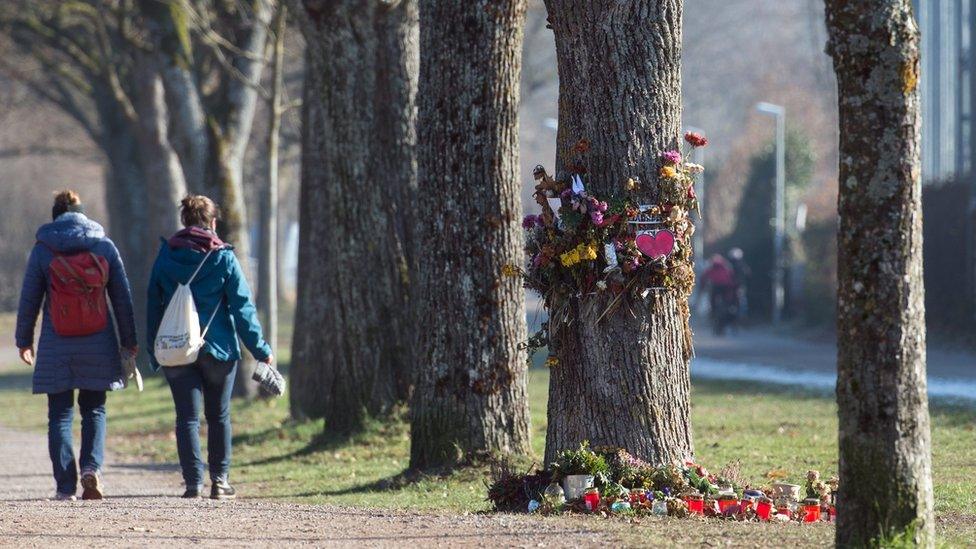Freiburg murder: Germans urged not to scapegoat migrants
- Published

A makeshift memorial marks the spot in Freiburg where a young woman was raped and murdered
Germans have been urged not to scapegoat migrants, after an Afghan youth was arrested over the rape and murder of a German student.
A 17-year-old Afghan boy is under suspicion because a DNA test appears to link him to the spot in Freiburg where the woman was attacked in October.
Vice Chancellor Sigmar Gabriel warned Germans not to exploit the crime "for incitement and conspiracy propaganda".
Last year's massive influx of migrants fuelled tensions over immigration.
The 19-year-old medical student disappeared in mid-October on her way home from a party in Freiburg, south-western Germany. Her body was found in the river Dreisam.
Merkel under pressure
The anti-immigration and anti-Islam Alternative for Germany (AfD) has gained ground in local elections, campaigning against Chancellor Angela Merkel's liberal policy towards migrants.
Mrs Merkel's spokesman Steffen Seibert condemned the "heinous" crime in Freiburg, but added: "We must not forget that we're talking about the possible act of one Afghan refugee, not that of a whole group of people, who are Afghans or refugees like him."
In the past two years there has been an escalation of attacks on migrant hostels in Germany - in some cases they have been burnt down.
The suspect being questioned by police arrived in Germany as an unaccompanied minor last year. He had been living with a foster family.
Many of the 890,000 asylum seekers who reached Germany last year had fled wars in Iraq, Syria and Afghanistan.
The largest groups of asylum seekers in January-October 2016 were: Syrians (38%), Afghans (18%) and Iraqis (13.5%), the Federal Office for Migration and Refugees (BAMF) reported, external.
Mrs Merkel was widely criticised for her "open door" policy on refugees, and she has admitted that Germany was ill-prepared for the influx.
The government has hardened its rhetoric on asylum and ministers are trying to toughen deportation laws.

A note on terminology: The BBC uses the term migrant to refer to all people on the move who have yet to complete the legal process of claiming asylum. This group includes people fleeing war-torn countries such as Syria, who are likely to be granted refugee status, as well as people who are seeking jobs and better lives, who governments are likely to rule are economic migrants.
- Published29 November 2016

- Published11 February 2020

- Published21 November 2016

- Published22 November 2016

- Published16 October 2016
